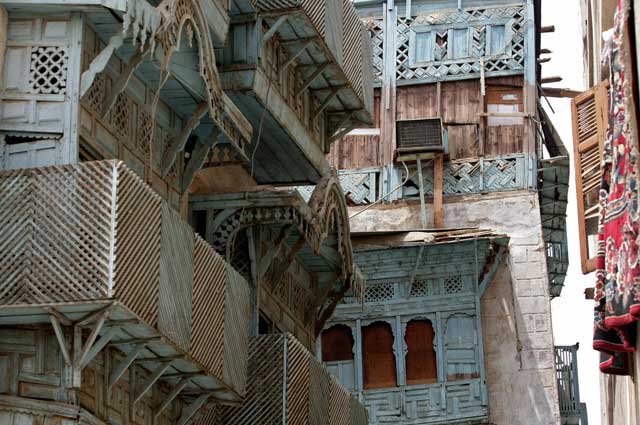
What do you call a monarchy in which a popular reformist politician-writer can enjoy the warm support of the ruling dynasty but still find some of his books banned from sale at home? There can be only one answer: the unpredictable Kingdom of Saudi Arabia. The author in question, novelist and minister of labour Ghazi al-Gosaibi, is living proof that the gnarly contradictions that encumber questions of free expression in the Gulf may stretch right to the topmost branches of the tree of power. Not long ago, I heard about a minister in one Gulf state who told a publisher abroad that his wife, a serious researcher, had written a fine objective history of his country. It deserved to be published but, sadly, would have to be censored on home ground. Who would do the banning? Why, the uxorious minister himself, of course.
Last week, I took part in a debate on literary prizes at the Abu Dhabi book fair, just as the two chief contests hosted by the emirate - the International Prize for Arab Fiction (the "Arabic Booker") and the Sheikh Zayed Book Awards (the panel's organisers) – announced their winners for the year. A shrewd questioner asked me whether the overseas promotion of Arab writers rested too much on the recycling of exotic stereotypes: a good point in many cases, even if our venue - Abu Dhabi's hulking hangar of a national exhibition centre - feels marginally less exotic than a big-shed warehouse for flatpack furniture in Swindon.
In general, more and better translations of Arabic books – a process often kick-started by such prizes - will help to make their themes and people more familiar to readers in the wider world, and less dependent for their impact on predigested clichés. (A Jordanian novelist once told me what a struggle it had been to get doe-eyed veiled ladies off her jackets in the West.) So I'm delighted that the long-list for this year's Independent Foreign Fiction Prize showcases a broader band of Arab authors than ever before.
All the same, writers in several Arab territories still live amid shifting sands of surveillance and control. They work in a treacherous limbo of semi-freedom that unavoidably looks "exotic" to outside eyes. Take last week's intriguing "Arabic Booker" victor, Abdo Khal from the Kingdom itself. He won for his outspoken novel about the Saudi plutocracy and its ruinous effect on poor communities in Jeddah, Spewing Sparks as Big as Castles (a Koranic allusion to hell). Is Khal, who writes for the Saudi press but publishes his fiction in Beirut, banned in his homeland? He certainly thinks that his books are "unavailable" (to use that great Gulf euphemism), and said as much in Abu Dhabi. However, Saudi culture minister Abdul Aziz Khoja has now stepped up to express his nation's pride in Khal as "an ambassador for creativity".
In the big-spending Gulf states, as in more traditional Arab artistic hubs, the liberty of literature may or may not be a mirage. Local rules can change by the day; by the hour. High-profile prizes, a booming business for Arab arts, may also veer between bold picks and safety-first. In 2008 and 2009, the literature section in the Sheikh Zayed Awards (named for the late, iconic founder of the UAE) went to Libya's Ibrahim-al-Koni and Egypt's Gamal al-Ghitani: both big, and brave, beasts in Arabic fiction, and banner-carriers for quality and integrity. This time, an inoffensive critic took the cheque.
So it goes: the paths to cultural change here will never run as bullet-straight as a highway through the desert. But still they lead down twistily fascinating routes. For the Arab world's ever-stoical authors, fitful state interference and capricious patronage join rampant piracy, patchy distribution and scattered readerships among the literary plagues of Egypt – and of its neighbours too. Meanwhile, as Minister al-Gosaibi proves, the authorship of books good enough to ban might even turn out to be a smart career move.
P.S.Among the literary skills deployed by the late Michael Foot was an epoch-making talent for polemic. Written with Frank Owen and Peter Howard in a few brief days as Britain faced invasion in spring 1940, his Guilty Men – the classic indictment of Nazi Germany's appeasers – changed the terms of political discourse. Given what we now know of Cabinet wobbles about seeking a truce with Hitler after Dunkirk, perhaps it helped to change the course of the war too. But emerging leaders often used to make an early splash in print. While editor of L'Aurore in 1898, the future French premier Georges Clemenceau chose perhaps the most influential headline in press history when his contributor Emile Zola denounced the persecution of Captain Dreyfus: J'Accuse. Somehow, for all the hype, I can't yet see Twitter posts turning the tides of fate.
Subscribe to Independent Premium to bookmark this article
Want to bookmark your favourite articles and stories to read or reference later? Start your Independent Premium subscription today.

Join our commenting forum
Join thought-provoking conversations, follow other Independent readers and see their replies